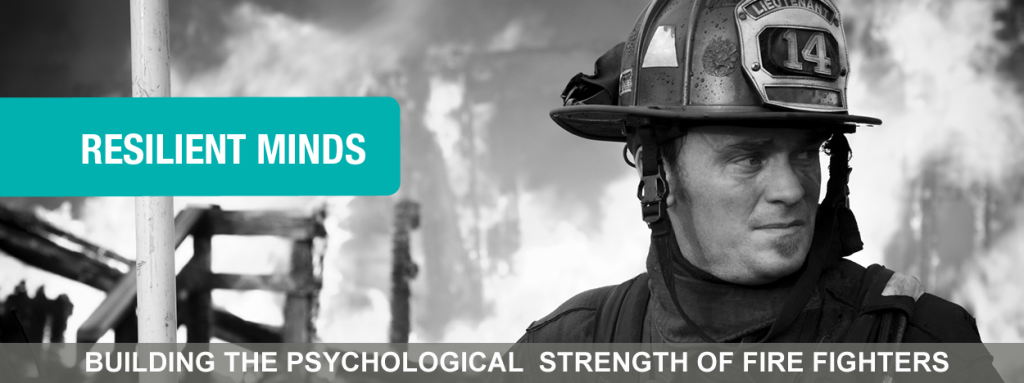Menu
Close
Resilient Minds™
Sep 8, 2022

The Resilient Minds™ program engages and informs first responders in four crucial areas relevant to their work: trauma, psychological distress, trauma-informed responses and building resiliency.
Resilient Minds™ uses the 4R Action Toolkit to build skills needed to reduce personal risks related to psychological impacts, and assist colleagues, family, or members of the public who may be struggling with a mental health problem or be in a crisis.
Visit the Resilient Minds™ National site at https://cmha.ca/resilient-minds.
Program Outline
Resilient Minds™ is a 8-hour workshop, however, each learning module can be delivered in 2 hours. A brief description and learning objectives for each of the four modules are outlined below.
Learning Module One
Psychological Trauma – Awareness and Understanding
Fire staff will learn the definition of resilience, stress and trauma, the various responses a healthy human may experience after a stressful or traumatic event, followed by assessment and intervention practices to mitigate the negative impacts of trauma, psychological distress, and disorder.
Objectives
- Define resilience and stress
- Build an understanding of psychological trauma and the impacts on personnel
- Learn to recognize the signs and symptoms of stress and trauma
- Encourage early response to psychological trauma
- Promote recovery after trauma
Learning Module Two
Psychological Trauma – Potential Risks and Strategies
Psychological trauma is explored further – through the application of the 4R Action Toolkit, fire staff will learn the importance of early recognition and early intervention to prevent a moderate to severe mental health problem from developing.
Objectives
- Provide an overview of assessment and intervention: The 4R Action Toolkit
- Develop communication skills
- Explore treatment options
- Discuss and review crisis intervention
- Identify how to support peers and promote recovery
Learning Module Three
Responding with Respect – Psychological Distress & Disorder
Fire staff will develop a basic understanding of psychological health and psychological disorders and the definition and importance of a trauma-informed response. They will learn to apply the 4R Action Toolkit to effectively communicate and appropriately respond to a citizen, colleague, family member experiencing a mental health problem/crisis.
Objectives
- Recognize the usefulness and key components of trauma-informed responding
- Increase understanding and recognize signs of psychological distress & disorder
- Develop effective communication skills to respond and support individuals
- Discuss appropriate and safe responses to challenging situations
- Gain an understanding of resources
Learning Module Four
Managing Workplace Stress and Building Resiliency
Fire staff will explore the risk factors and impact of workplace/life stress and will learn to strengthen their resiliency by building valuable and helpful coping strategies.
Objectives
- Recognize negative impacts of work-life stress
- Identify components of burnout, compassion fatigue and vicarious trauma
- Develop action toolkits to limit work-stress
- Build resilience and strengthen psychological health
The two delivery options are;
- Train-the-trainer private delivery
- Resilient Minds™ Workshop
Click here for The Resilient Minds Impact Story.
Please contact us for more information.
Email: courses.vf@cmha.bc.ca
Phone: 778-986-2524